Should I Use a Mineral or Chemical Sunscreen? Pros Weigh In + Share the Best SPF Formulas
Sunscreen — it's a non-negotiable part of summer skin care...and really for all seasons! But after pinpointing the right level of SPF and/or if you want a tinted version, the next step is choosing a formulation: mineral or chemical sunscreen. And with so many options for both types of SPF on store shelves, choosing the right one can feel like deciphering a foreign language. Should you go with mineral or chemical sunscreen? That’s why we chatted with top dermatologists Mona Gohara, MD and Vicki Rapaport, MD — plus, Richard Parker, cosmetic chemist and founder of Rationale, to get into how exactly each type works, their respective pros and cons and ultimately, which one might be the perfect match for your skin. Get your beach bag ready, and prepare to apply your newfound sunscreen knowledge. Let’s soak up the sun (safely) all year long!
What is mineral sunscreen?
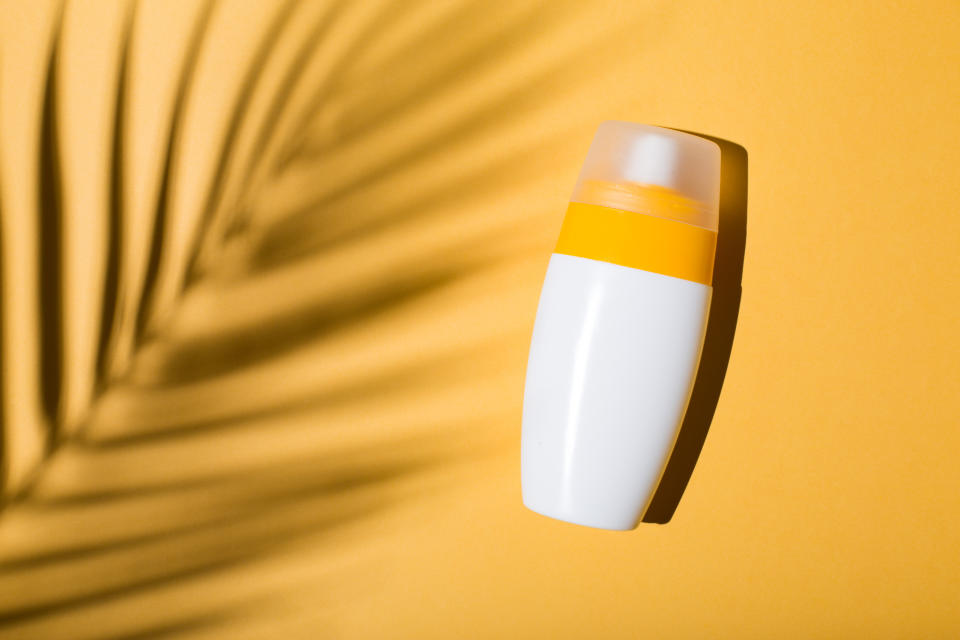
“A mineral sunscreen uses filters like titanium dioxide or zinc oxide," says Dr. Gohara. “They act as shields and deflect the UV rays.” Zinc oxide both absorbs and reflects solar radiation, adds Parker. And "it is the only sunscreen capable of protecting against UVB and UVA rays,”
Mineral sunscreen represents a stalwart defense against the sun's harmful rays, adds Dr. Rapaport. “Acting as a physical barrier, these mineral constituents deflect UV radiation, offering a reliable shield for your skin. They work by reflecting and scattering UV rays away from the skin's surface, making them an excellent choice for those with sensitive skin.”
Dr. Rapaport shares that it’s her greatest pleasure as a Beverly Hills-based dermatologist that when she has a young patient come in stating they wear sunscreen every day. “I think we are finally making a difference in this next generation, impressing upon them the many benefits of regular sunscreen use! I have been moving more towards recommending only physical — also known as mineral — sunscreens to my patients,” she says.
What is chemical sunscreen?
“A chemical sunscreen uses filters such as oxybenzone,” explains Dr. Gohara. “They act as a sponge and absorb the UV rays." Besides oxybenzon, chemical sunscreens can also contain avobenzone and both absorb and dissipate UV radiation, says Dr. Rapaport. “This formulation, while imperceptible on the skin, provides comprehensive protection against solar damage,” she explains. “Chemical sunscreens work by absorbing UV radiation and converting it into heat, which is then released from the skin.”
Should I use mineral or chemical sunscreen?

The answer on whether to use mineral or chemical sunscreen is not on-size-fits all. It depends on your skin type and what you're looking for in a sunscreen, but generally speaking, the pros we spoke to lean toward mineral formulas. “Although chemical sunscreens are excellent and can be virtually invisible on the skin, I find physical [or chemical] sunscreens to be better suited for my sensitive skin patients,” says Dr. Rapaport.
One important thing to note according to Parker, several chemical sunscreens have been found to enter the bloodstream where they may have hormone-disrupting effects. So he makes a case for mineral sunscreen, as “zinc oxide does not enter the bloodstream or disrupt hormones.” So it may be best to speak to a dermatologist to determine what SPF formula is best for you.
For more on the mineral or chemical sunscreen debate, watch the below YouTube video from dermatologist Heather Rogers, MD.
The pros and cons of mineral sunscreen
The pros: Since the the filters are naturally-occurring minerals, they are less irritating, and the skin is less likely to react to them, says Dr. Gohara. They block out many different types of light as well, she notes. Dr. Rapaport adds that mineral formulas can offer more hydrating benefits and they are great to use after in-office skin treatments like lasers, chemical peels and more since they protect skin and don't absorb into skin.
The cons: In their pure form, minerals formulas are not cosmetically elegant, says Dr. Gohara. That's why they can leave skin with a white cast, making it difficult to blend in with a lot of skin tones. “However, newer matte and tinted formulations help minimize a white cast and can leave the skin with a smooth, even appearance,” says Dr. Rapaport.
The pros and cons of chemical sunscreen
The pros: Dr. Gohara says that in terms of pros, they usually blend better on all skin tones. And Dr. Rapaport says that these formulas are ideal for water-resistant formulations used for swimming and outdoor activities and generally are absorbed quickly into the skin.
The cons: Both Dr. Gohara and Dr. Rapaport agree that chemical formulas may not work for those with sensitive skin. They can be more irritating, can cause more inflammation and are less likely to block out other forms of light, adds Dr. Gohara
The best mineral sunscreens
Among mineral sunscreens, there are a couple of textures to choose from: oil-based versus water- or cream-based. What’s the difference? Parker says that water-based sunscreens feel lighter on the skin but wash off more easily, whereas oil-based sunscreens form a better waterproof barrier and last longer when wet, but they can feel heavier on the skin. Here, the top mineral SPFs.
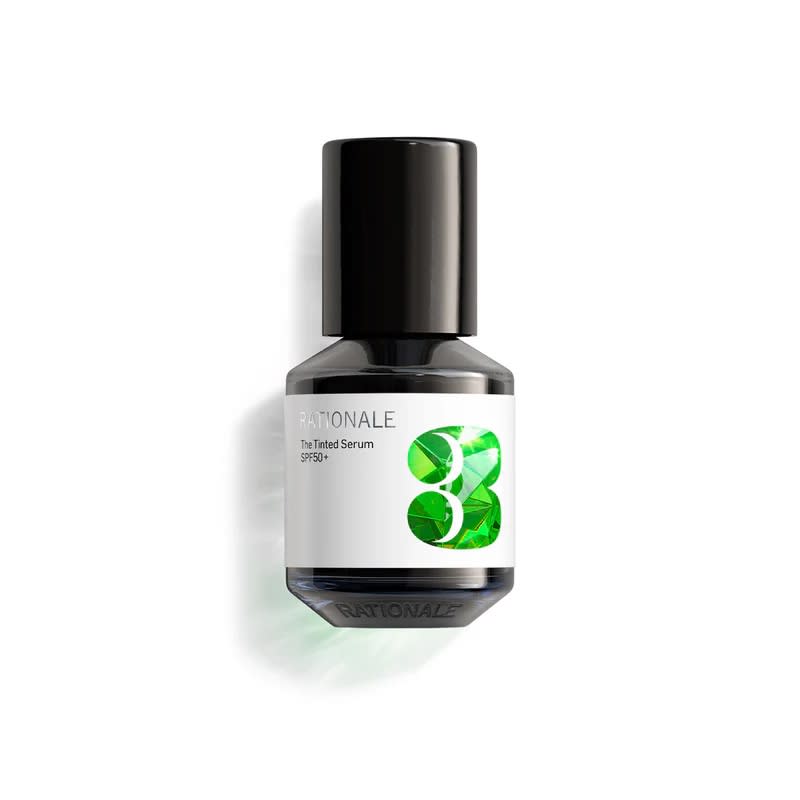
This is Parker’s recommendation, which provides complete UVA and UVB protection using only natural zinc oxide. “It also shields the skin from harmful visible light and infrared radiation using natural iron oxides and melanin."
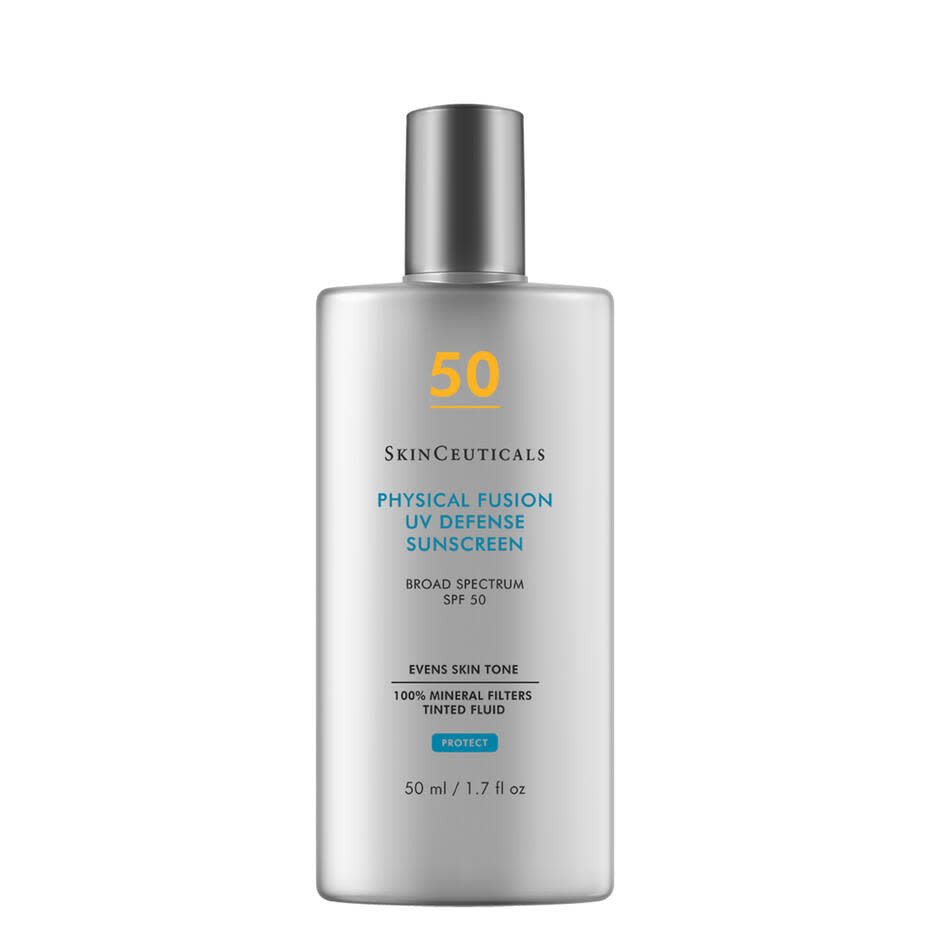
SkinCeuticals Physical Fusion UV Defense Sunscreen SPF 50
Dr. Rapaport favors this mineral SPF. What she likes? It’s a weightless tinted fluid infused with artemia salina (aka plankton extract that further protects skin from UV rays) and comes in a natural tint that complements a wide range of skin tones.
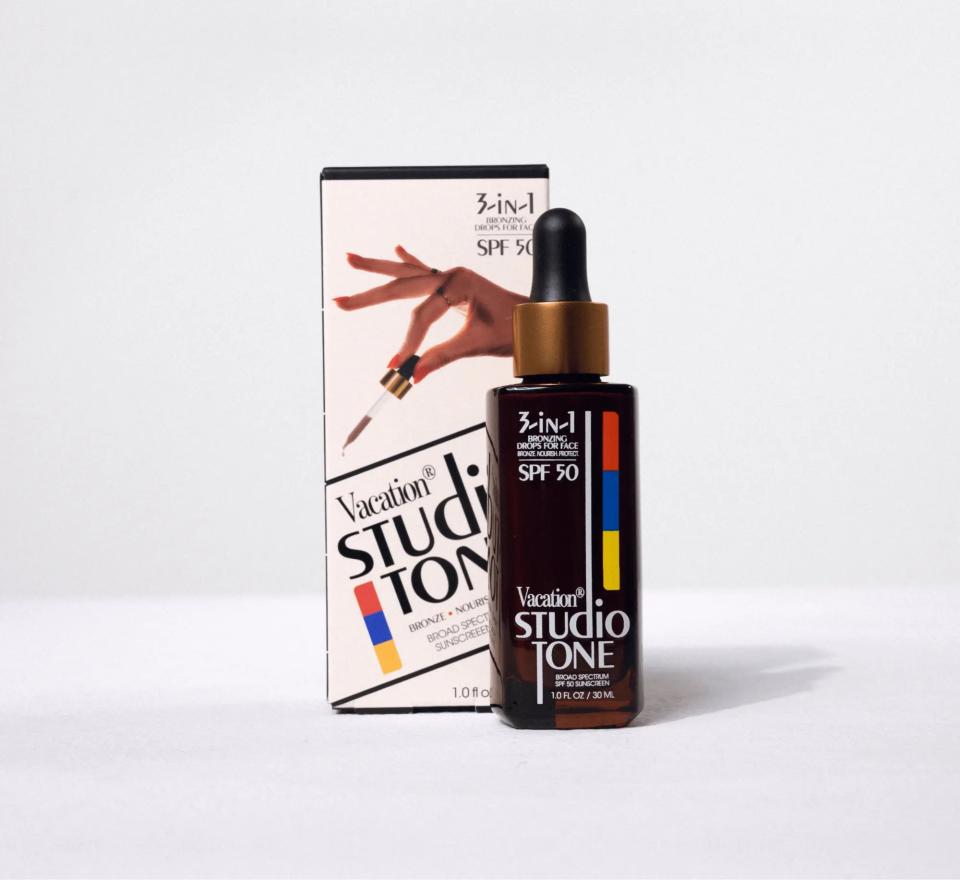
Vacation Inc. Studio Tone SPF 50 Bronzing Drops
This new formula imparts a hint of tint and is a super blendable, mineral-based high SPF. And its '90s-esque packaging and dropper applicator make this one even more of a win.
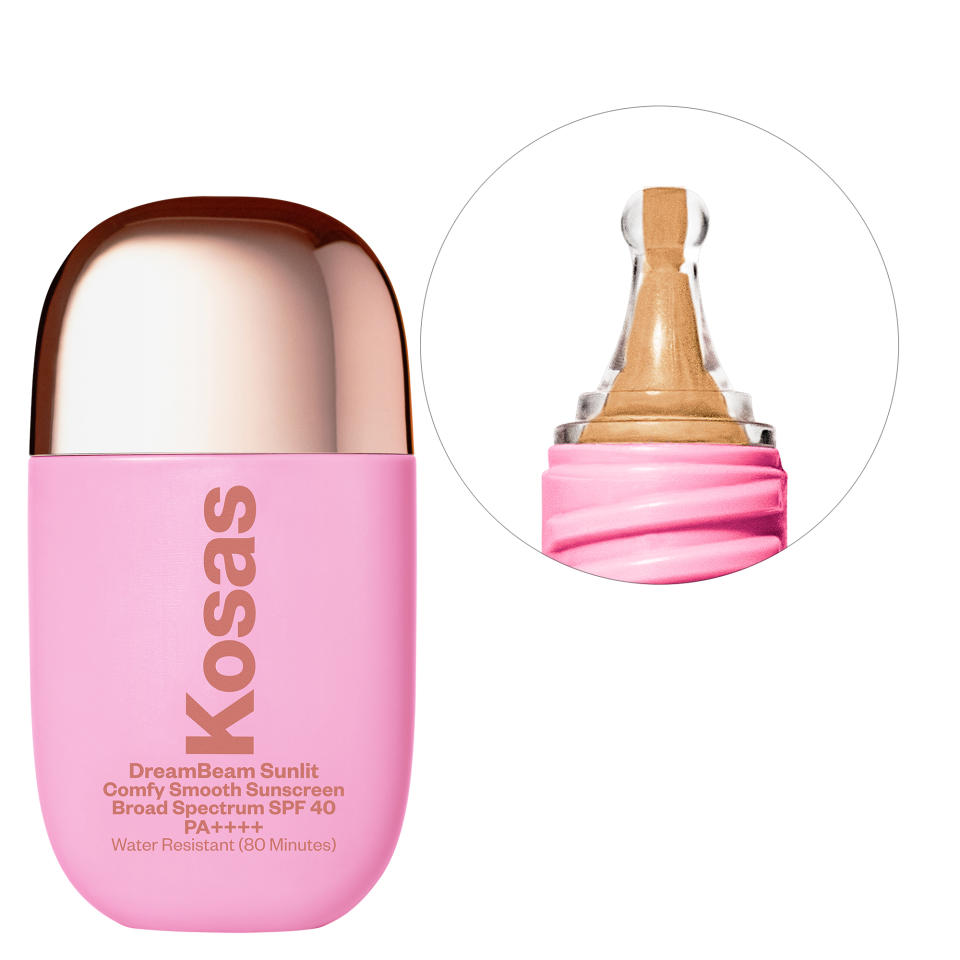
Kosas DreamBeam SPF 40 in Sunlit
This new, bronzy-tinted take on the brand's bestselling original mineral sunscreen is a bronzing drops-SPF fusion. We love it for providing a priming effect under makeup, but it’s equally as beautiful on its own as well.
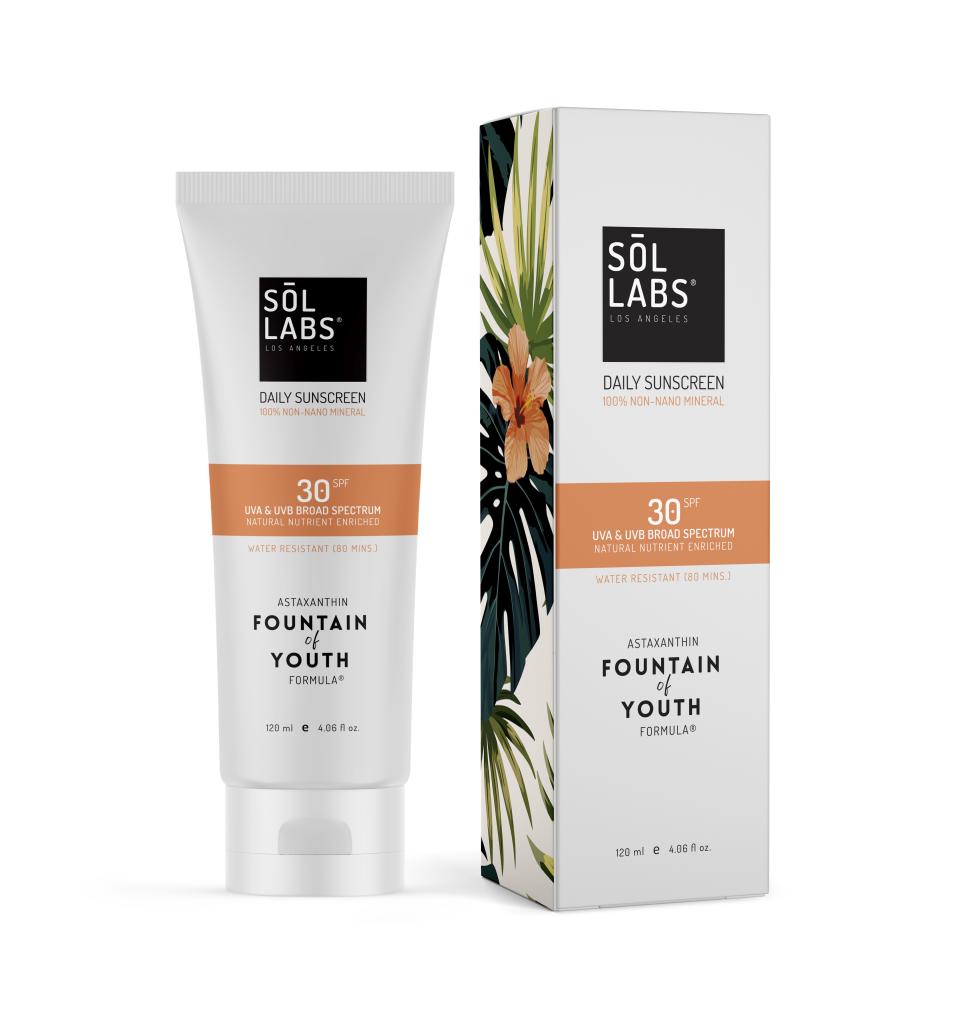
SOL LABS Natural Mineral SPF 30 Sunscreen
There's no white cast with this mineral SPF that feels like a luxurious body lotion when applied to skin. Even better? It contains astaxanthin, an antioxidant that wards off free radicals and sun damage and improves skin's elasticity.
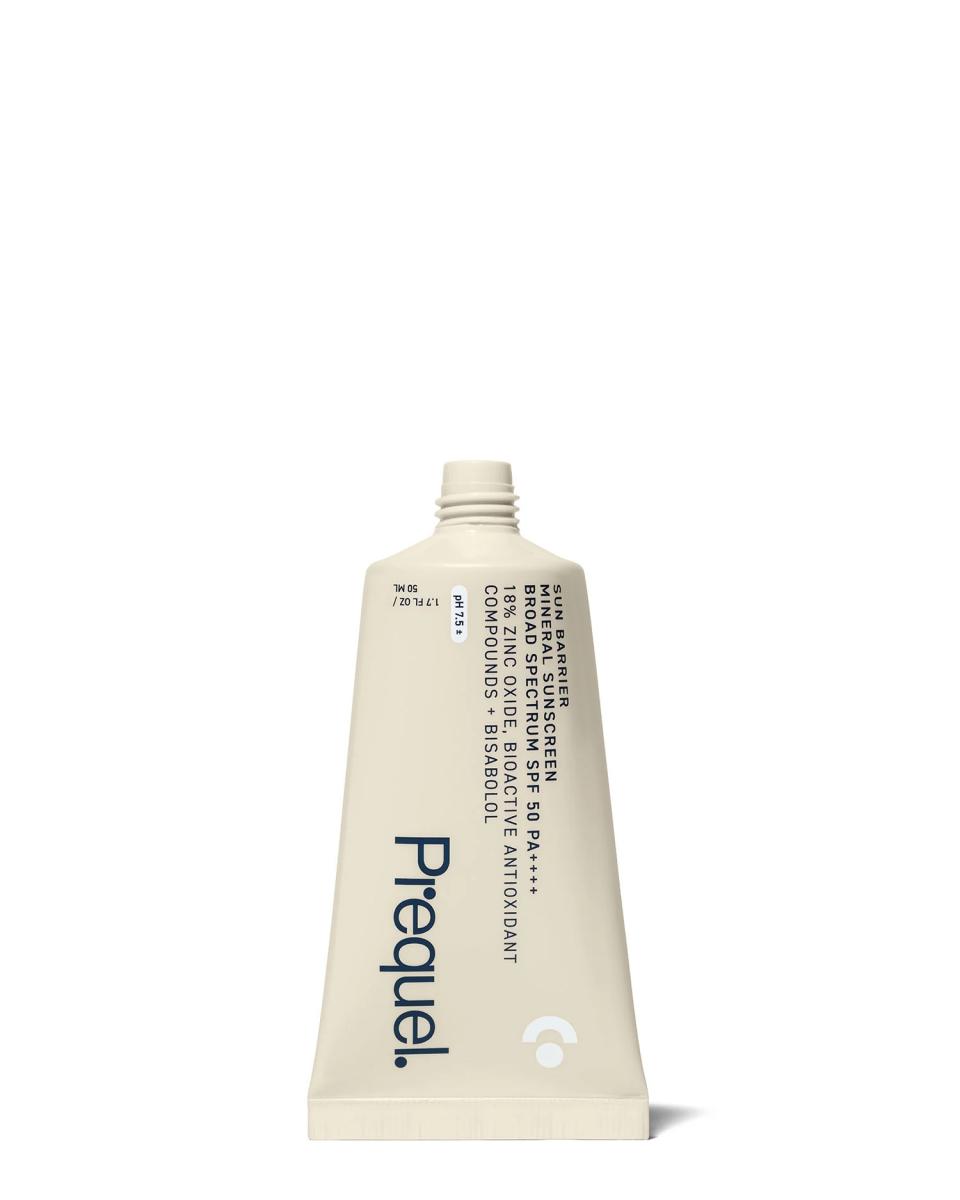
Prequel Sun Barrier Mineral Sunscreen
We love this formula's super-elegant texture at a relatively low price point. What sets it a part from other mineral sunscreens is that it has a peachy hue that easily blends into a multitude of skin tones and instantly brightens the complexion.
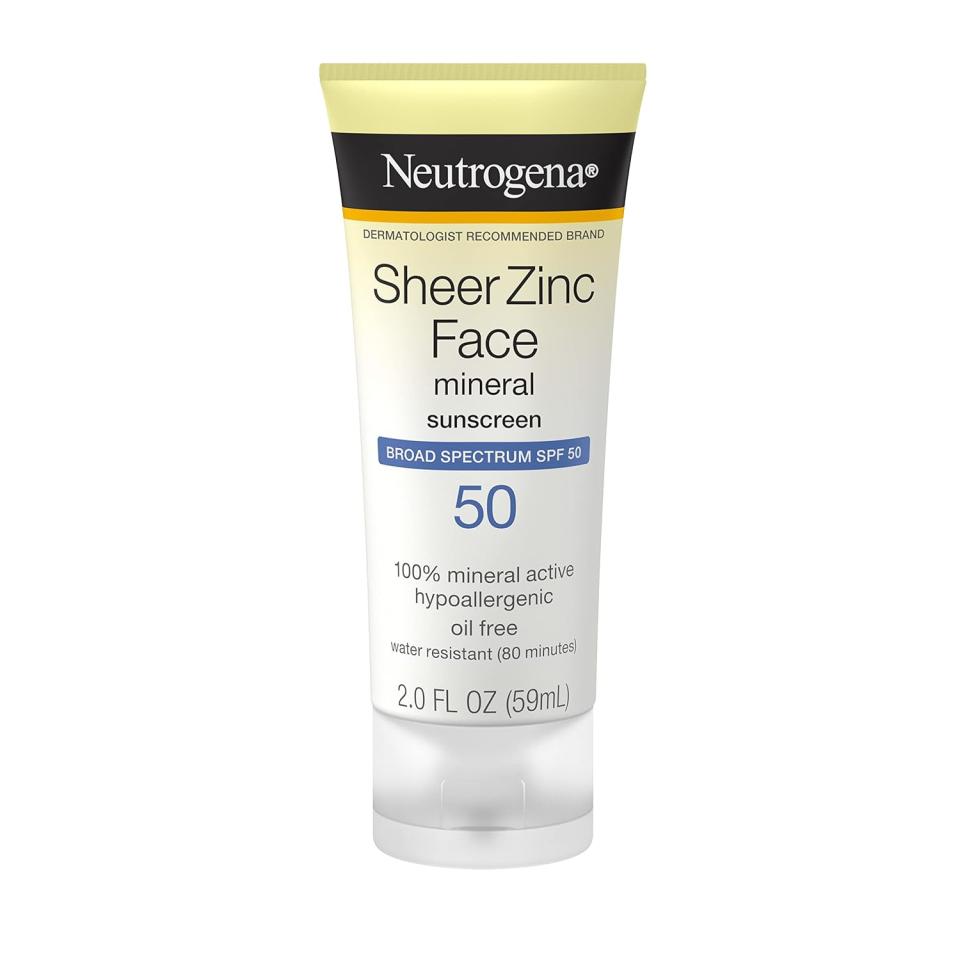
Neutrogena Sheer Zinc Oxide Dry Touch Face Sunscreen
A go-to mineral SPF for Dr. Gohara is this Neutrogena option. Ideal for beach and pool days, it’s water-resistant and features naturally-sourced zinc oxide. Besides that, it also has a dry-touch technology ensures it’ll never feel heavy or greasy on your skin.
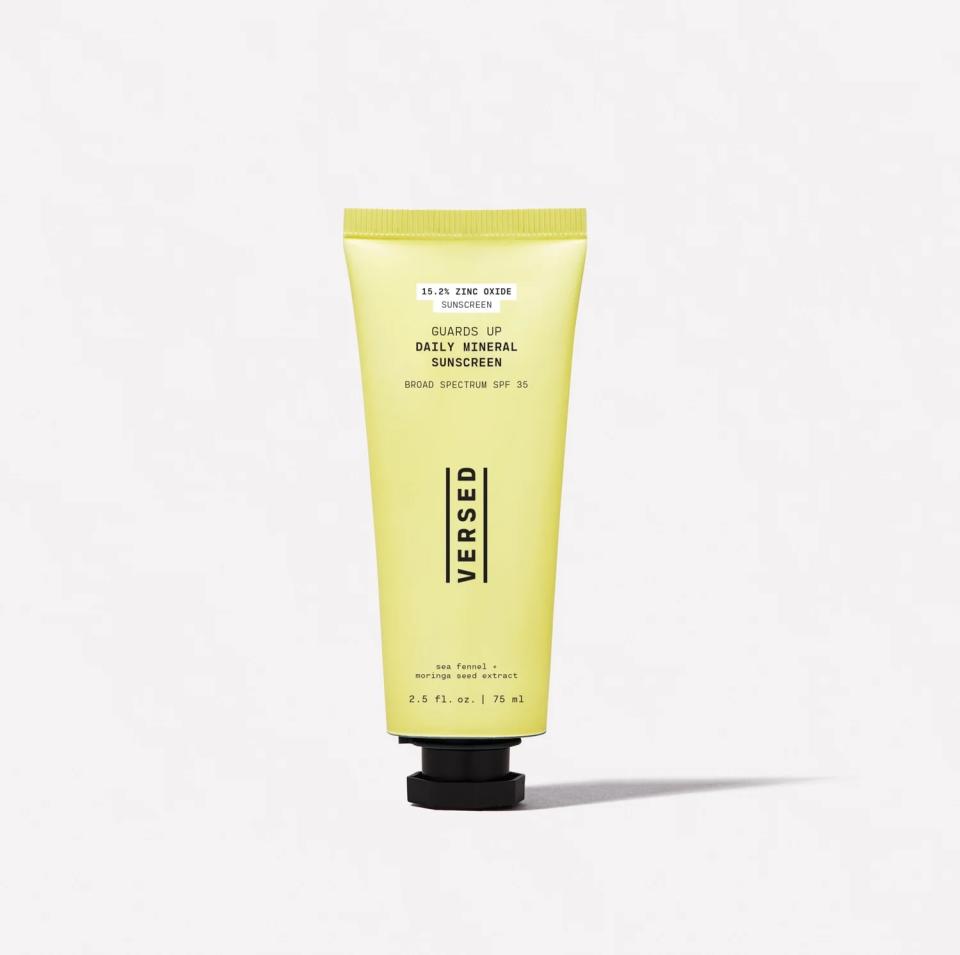
Versed Guards Up Daily Mineral Sunscreen
Dr. Gohara recommends this formula, which includes an SPF of 35 and a larger size, non-nano zinc oxide physical sunscreen. What's more, it blends in easily without leaving a chalky finish.
The best chemical sunscreens
If you prefer to go the chemical route with your SPF, keep scrolling to see some great options.
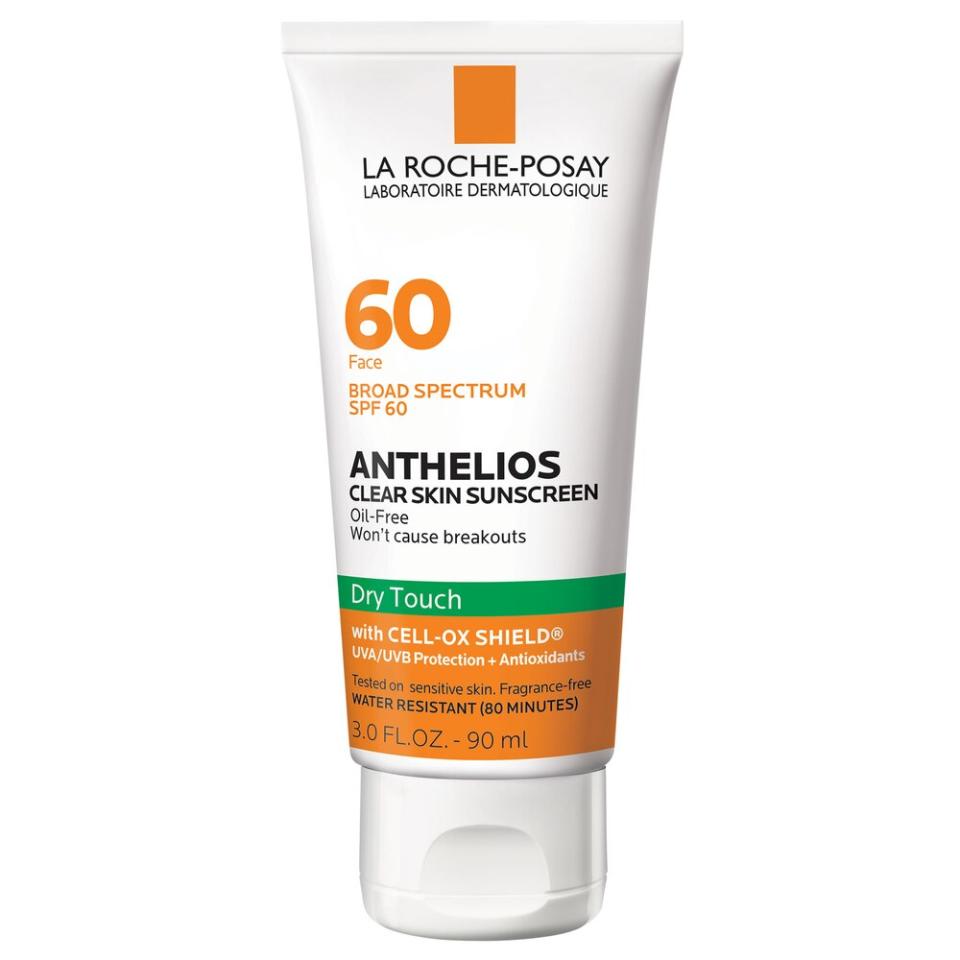
La Roche-Posay Anthelios Clear Skin Sunscreen, SPF 60
It's a classic, best-selling sunscreen for a reason and one that gets a gold star from Dr. Gohara — plus, it can be found at the drugstore. Best of all, it boasts a dry-touch formula, SPF 60 and absorbs excess oil so you won't feel greasy.
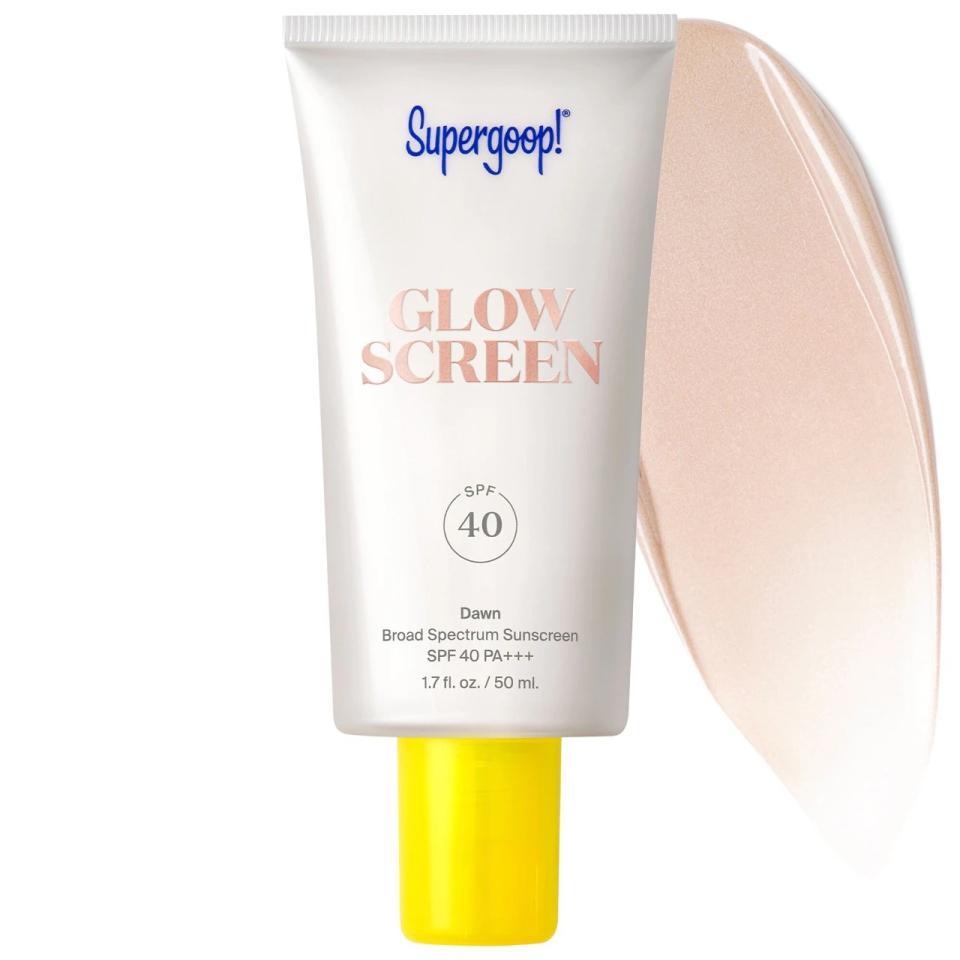
This chemical formula spawned a thousand luminescent sunscreens, for good reason. It's a radiant-finish sunscreen that's lightweight and slightly pearlescent to blur imperfections without much coverage. Additionally, the formula is rich in hyaluronic acid and niacinamide, so it could stand in for your regular moisturizer.
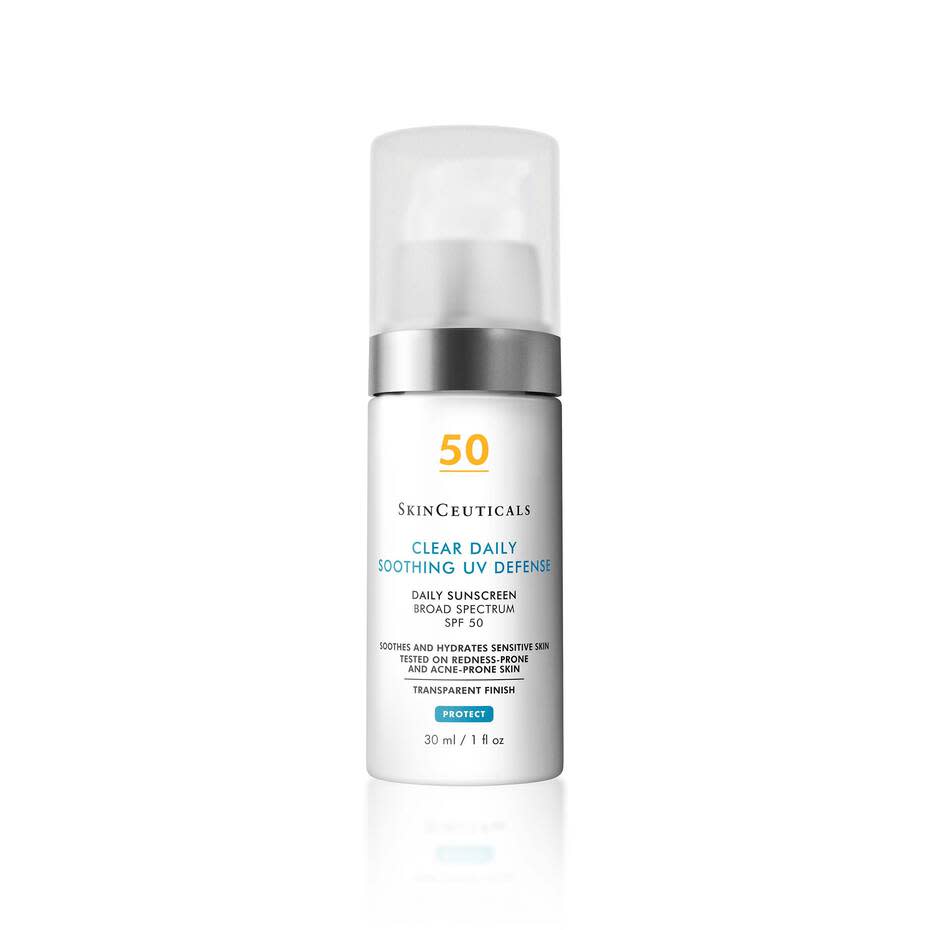
SkinCeuticals Clear Daily Soothing UV Defense SPF 50
This new formula from the skin care brand is one that Dr. Rapaport recommends as an option to use daily. "It soothes, hydrates, and defends sensitive skin against aggressive UVA/UVB rays,” she says. And the formula can actually reduce inflammation and redness for all skin tones — plus, it features 7% glycerin for hydration and protection.
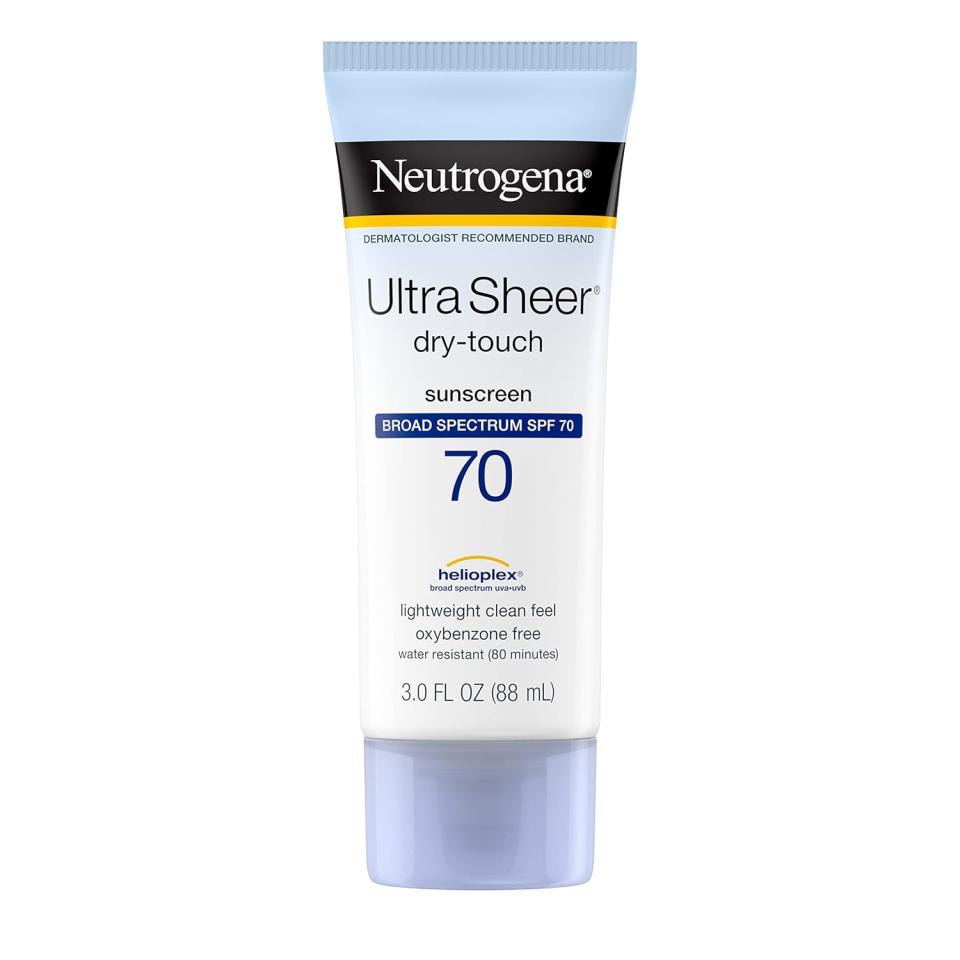
Neutrogena Ultra Sheer Dry Touch Water Resistant Lotion
Another drugstore option recommended by Dr. Gohara is this Neutrogena formula. It offers a high SPF of 70, plus, its lightweight formula and sheer texture is fast-absorbing for those times you want to get in the water, right away.
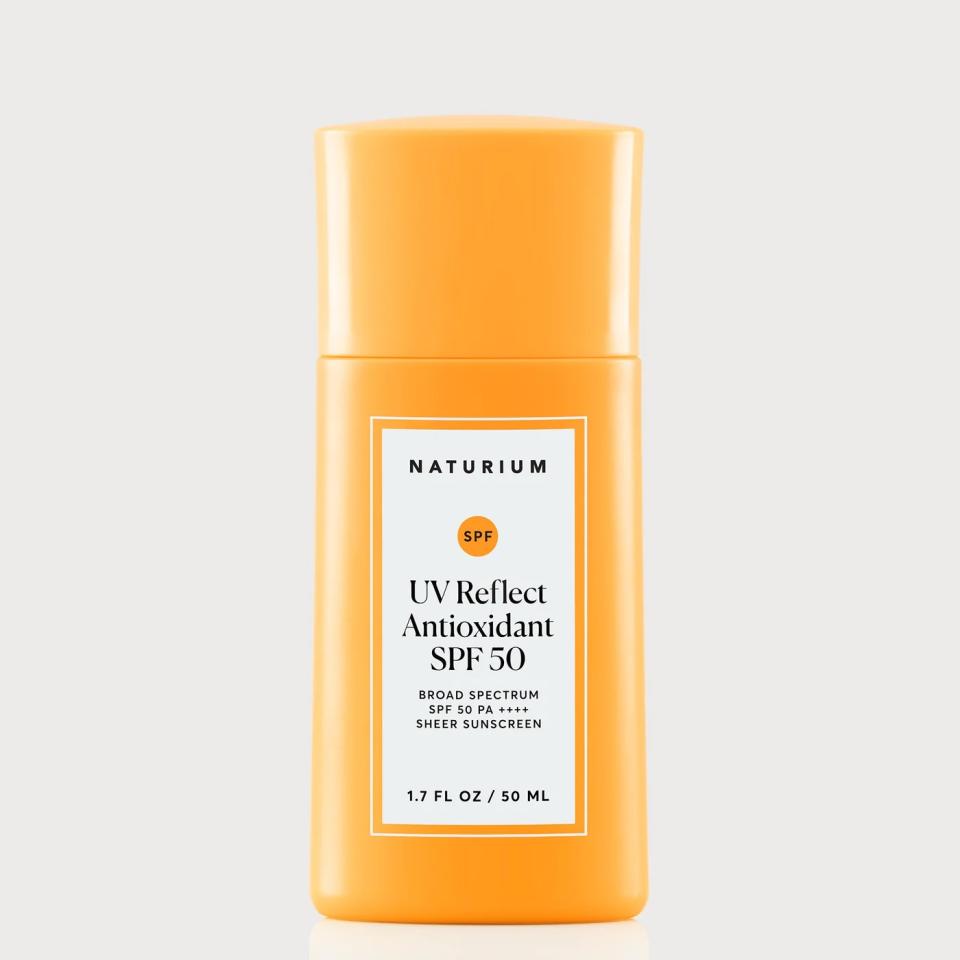
Naturim UV Reflect Antioxidant Sunscreen
For a formula of a SPF of 50 that's also rich in antioxidants, this is Dr. Gohara's pick. Antioxidants help neutralize free radicals to keep them from harming skin and leading to premature aging. Meanwhile, this formula also protects against infrared and blue light.
For more skin care tips:
MDs Share the Best Menopause Skin Care Routine + Products for Women Over 50
Squalane Skin Benefits: Pros Share Why This Ingredient Works Well for Women Over 50
How to Get Rid of Textured Skin: What Women Over 50 Need to Know for Smoother, Youthful Skin
